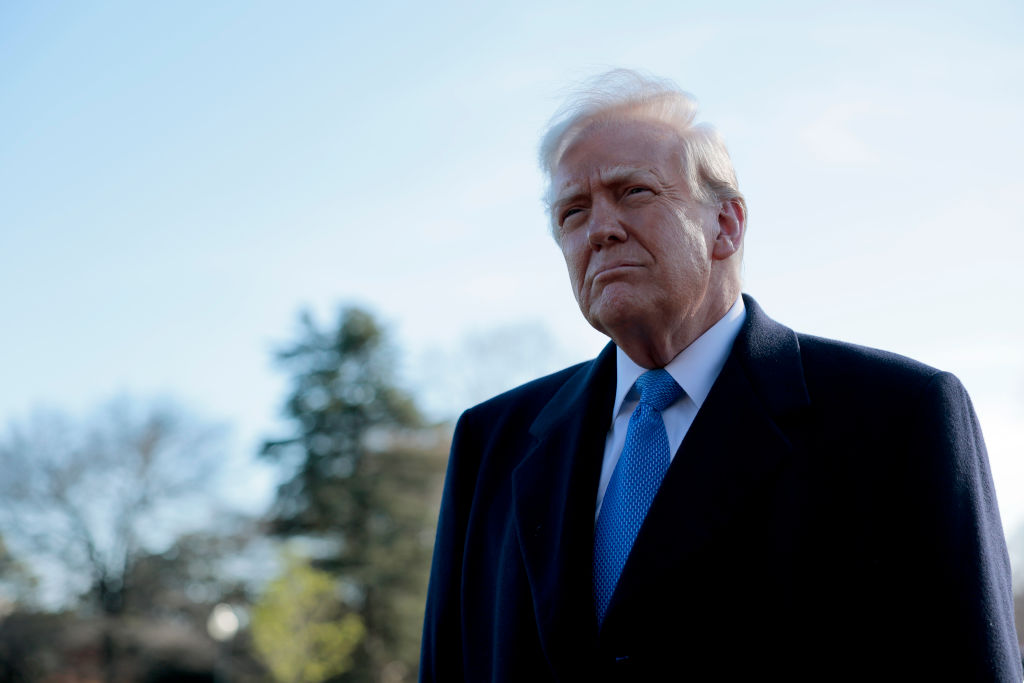Last week in Starbucks v. McKinney, the United States Supreme Court continued its lonely but fruitful yeoman’s work thwarting Joe Biden’s runaway federal bureaucracy.
In so doing, it issued an equally important rebuke against Big Labor.
The egregiousness of the underlying facts highlight the modern labor movement’s lawlessness and sense of entitlement. The arrogance of the legal claims, meanwhile, highlight the Biden administrative state’s belief that it somehow stands above the law, immune from due process restraints that apply to other parties appearing before the judicial branch.
Back in 2022, several employees at a Memphis, Tennessee, Starbucks location formed an organizing committee and commenced a unionization effort. As part of their campaign, the employees invited a local television station to visit the location after working hours in order to advance their effort. The problem arose when the off-duty employees violated strict company policy by unlocking the doors after the store had closed for business and inviting the television crew inside without management authorization. When the store’s managers discovered what had occurred the previous evening, they launched an investigation and ultimately terminated the employees who had deliberately violated company policy.
Naturally, the “Workers United” union considered termination for violating strict company policies improper, and filed an unfair labor practice charge against Starbucks. Today’s labor movement apparently believes that off-duty employees should be free to unlock store doors and invite whatever outside parties they choose inside the store with impunity. What could possibly go wrong?
Unsurprisingly, the Biden administration’s sympathetic National Labor Relations Board (NLRB) filed a complaint against Starbucks on behalf of the union, and sought a preliminary injunction in federal court to force Starbucks to reinstate the employees who had brazenly violated store security policies.
The lower district court granted the union’s injunction petition after applying an extraordinarily soft standard, which triggered the appeal that ultimately brought the case before the Supreme Court.
Without descending into excessive legalese, it’s important to understand the traditional four-part test that American courts employ when determining whether to grant preliminary injunctions. Because of the gravity of a potential injunction and the significant and immediate impact that they can have on the respective parties, courts generally require plaintiffs seeking injunctions make a clear showing (1) that they are likely to succeed on the merits of the case, (2) that they are likely to suffer irreparable harm in the absence of an injunction, (3) that the balance of fairness tips in their favor and (4) that an injunction would be in the public interest.
As Justice Clarence Thomas wrote in his majority opinion, “These commonplace considerations applicable to cases in which injunctions are sought in the federal courts reflect a practice with a background of several hundred years of history.”
The NLRB and lower court, however, preferred an injunction standard so lenient that it defies credulity. Namely, the lower court ruled that the NLRB “could establish reasonable cause by simply showing that its legal theory was substantial and not frivolous.”
Imagine filing a lawsuit and knowing that you could succeed by showing that your legal theory was “not frivolous.”
Fortunately, Justice Thomas and the majority were having none of that.
“[I]t is hard to imagine,” Justice Thomas wrote, “how the Board could lose under the reasonable cause test if courts deferentially ask only whether the Board offered a minimally plausible legal theory, while ignoring conflicting law or facts.” Adopting the NLRB’s preferred standard would effectively be “rendering the court more a spectator than a referee when it comes to matters of equity.”
Accordingly, the majority held that courts must apply the centuries-old traditional test when considering whether to issue an injunction sought by the NLRB, just as would apply to other parties.
The fact that Joe Biden’s NLRB sought with a straight face to live under a “not frivolous” legal standard when seeking injunctions speaks volumes about the arrogance of the administrative state under his leadership. Elsewhere we see Biden’s Federal Communications Commission (FCC) resurrecting failed Obama-era “Net Neutrality” regulations that led to a decline in private broadband investment for the first time ever outside of an economic recession during its brief experiment before repeal by the Trump administration. And over at Biden’s Department of Justice (DOJ), it now seeks to break up a Live Nation/Ticketmaster merger that the same DOJ approved just a few years ago.
It’s unfortunate that costly and protracted litigation is required to restrain an increasingly out-of-control administrative state under Joe Biden. We can at least remain grateful, however, that a Supreme Court populated by strict constructionists continues to stand guard.
Timothy H. Lee is Senior Vice President of legal and public affairs at the Center for Individual Freedom.
Reprinted with Permission from CFIF.org – By Timothy H. Lee
The opinions expressed by columnists are their own and do not necessarily represent the views of AMAC or AMAC Action.






